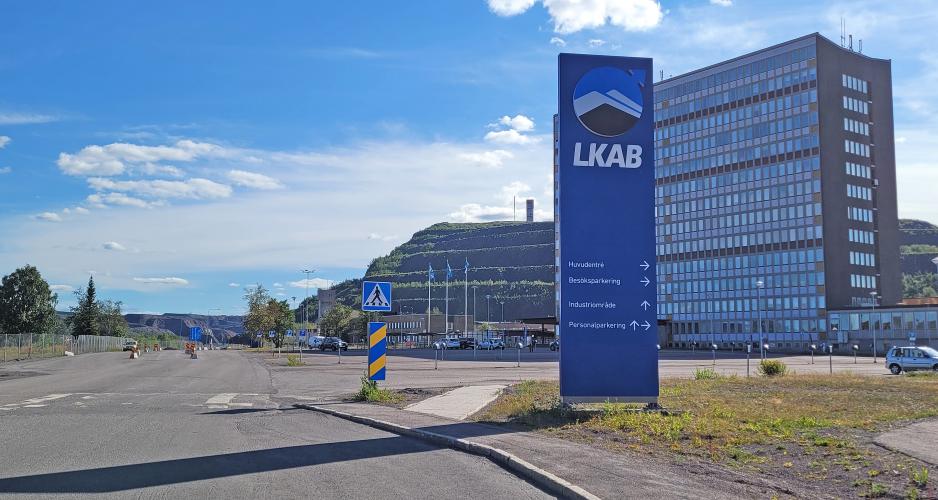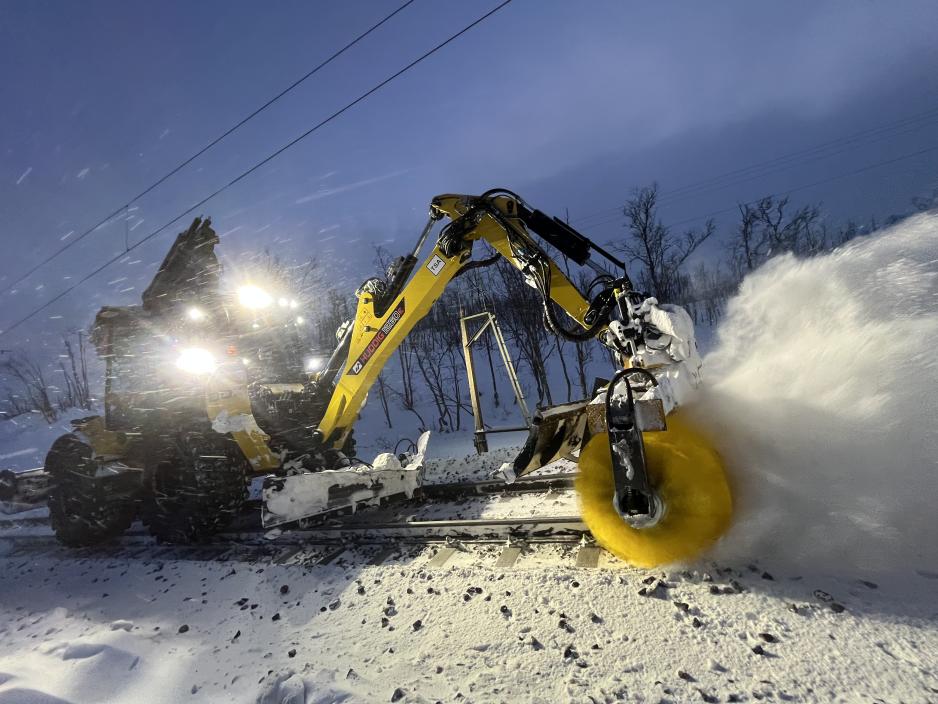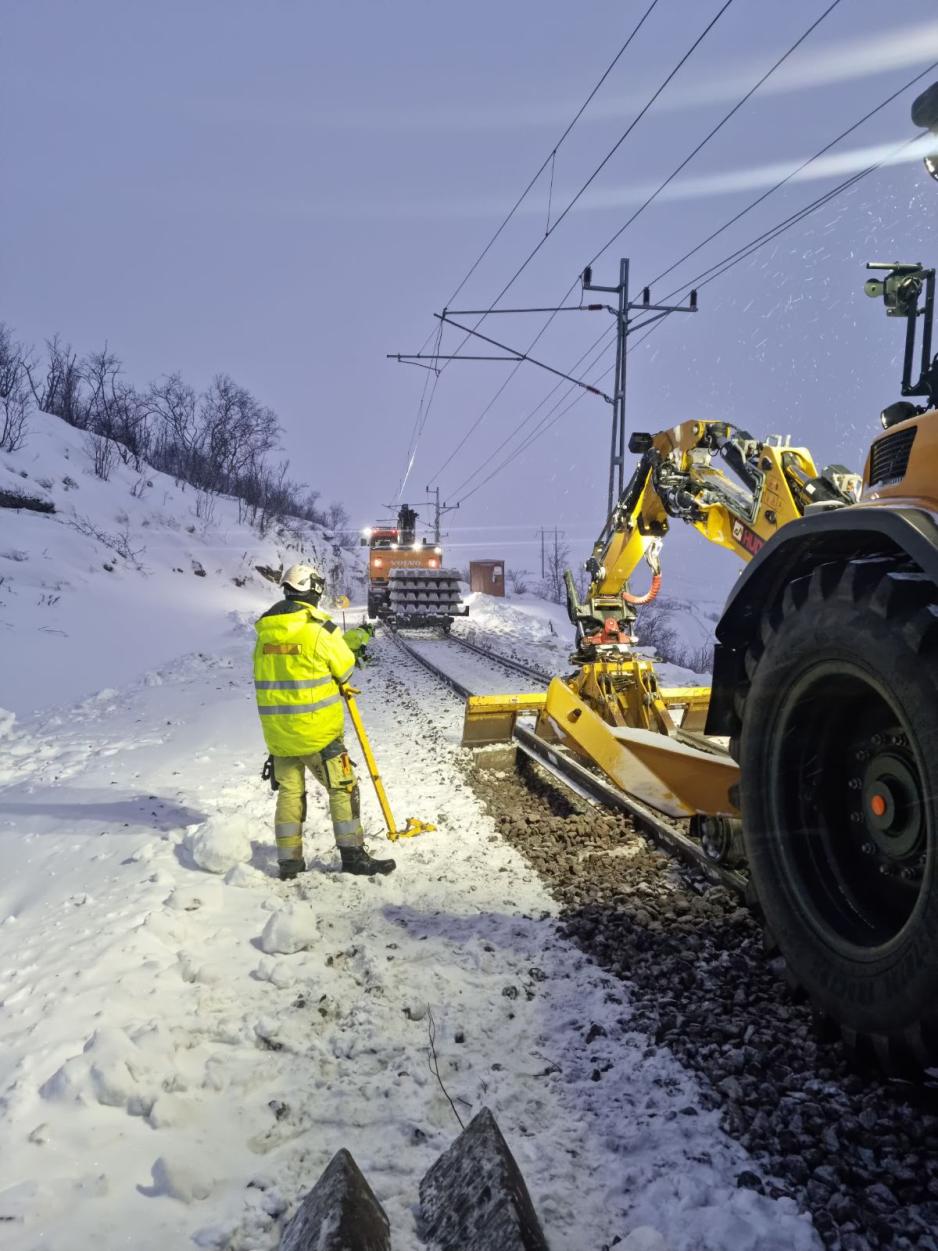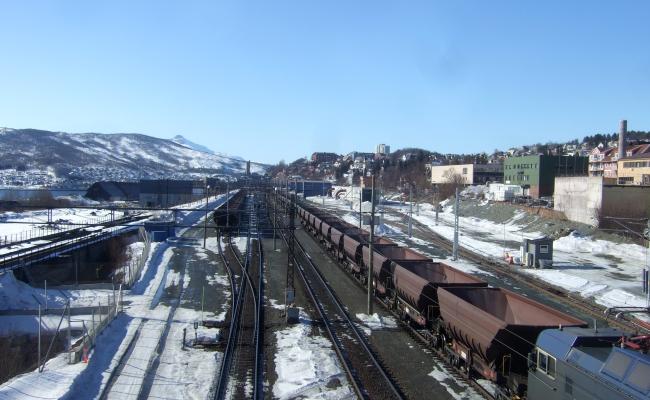Iron Ore Traffic Expected Resumed at the End of January: Derailment in Northern Sweden Hits LKAB Hard

The mining company LKAB operates iron ore extraction in Northern Sweden. The Port of Narvik is responsible for two-thirds of the company's export of iron ore products, but some are also transported to the Port of Luleå in the west. Due to the iron ore train derailment, the railway line toward Narvik is now closed. (Photo: Arne O. Holm / High North News)
The extent of the iron ore derailment in Northern Sweden is becoming more apparent, and the prognosis for resumed traffic is now set for the end of January. The stoppage strongly affects the mining company LKAB, with an estimated daily revenue loss of SEK 100 million.
All traffic on the Iron Ore Line north of Kiruna in Northern Sweden has been at a standstill since just before Christmas when one of LKAB's fully loaded iron ore trains derailed on the way to Narvik.
The mining company LKAB operates iron ore extraction in Norrbotten, and significant amounts of iron ore are transported via the Iron Ore Line (and the Ofoten Line on the Norwegian side) to the Port of Narvik, where it is shipped out to LKAB's customers worldwide.
The Swedish Transport Administration recently updated its prognosis for when traffic can be resumed on the Iron Ore Line between Kiruna and Narvik.
The previous prognosis was set for January 9th but has now been extended to the end of January. The Swedish Transport Administration emphasizes that the prognosis is temporary and can be updated.
We are talking about revenue losses of around SEK 100 million a day.
“It is very worrisome, and it will have a big impact on us if it drags on for too long. We are talking about revenue losses of around SEK 100 m a day,” says Linda Bjurholt, Logistics Manager of LKAB, in a press release on the company's website.
Extent of derailment grows larger
The derailment led to major damage to the rails, sleepers [substrate for railway tracks, ed. note], switches, and overhead lines in Vassijaure, which is located on the stretch between Kiruna and Narvik.
According to LKAB, a whopping 25,000 sleepers are to be replaced on a 15-kilometer-long stretch, among other things.
"So far, we have replaced about 6000 sleepers on the stretch between Tornehamn and Vassijaure," says Simon Sunna, Acting Head of the Northern Railway Unit at the Swedish Transport Administration. He adds that people are working to get an overview of the damages, as well as planning the replacement of rails and restoration of overhead lines.
Sunna says the biggest challenge ahead is the weather in the area. Several places along the Iron Ore Line are now seeing temperatures as low as -30 degrees.
Due to the cold, the Swedish Transport Administration announced a temporary pause of restoration work on the Iron Ore Line on Tuesday.
“Those who work with the restoration have so far made an extremely strong effort, but we will never risk anyone’s health,” Sunna adds.
"We cannot control the weather, and it is extremely cold right now. The most important thing is that those who are working on the restoration have a good working environment," says Caroline Wiss, CEO of LKAB Malmtrafik [Iron Ore Traffic, ed. translation].

From the clean-up on the Iron Ore Line. It is currently very cold in the area. (Photo: the Swedish Transport Administration)
Storage piles are growing
In addition to the economic consequences of the stoppage, LKAB writes that the storage of pellets, raw materials, and special products on the ground is growing both in Kiruna and Svappavaara, where LKAB has its activities.
According to the company, 1 million tonnes of pellets are currently being stored outdoors, and the amount increases daily.
"Our operations never stand still; it does not matter if it is the weekend or a weekday. The current scenario we are seeing is that if the mining continues to operate according to plan, by the end of January we will have around 2,6 million tonnes of pellets stored on the ground in Kiruna and Svappavaara," says Markus Björnfot, Planning Manager of logistics in LKAB.
"Our hope is that the work on the line is finished earlier than the current forecast suggests. At the same time, we understand the challenges of weather and cold. Everyone has made great efforts so far, but to us and others, everyday matters. We have offered the Swedish Transport Administration the opportunity to strengthen its staff or other things needed if it can expedite the process," concludes Logistics Manager Bjurholt.
An important railway
The Iron Ore Line is a railway line stretching from Kiruna in Northern Sweden and west toward Narvik in Northern Norway.
On the Swedish side, it also stretches from Kiruna to Luleå in the east. On the Norwegian side, the railway line is called the Ofoten Line.
The railway is used by the Swedish mining company LKAB, which operates iron ore extraction in Norrbotten.
Typically, 10-12 of LKAB's iron ore trains run daily between Narvik and Kiruna. In addition, other freight traffic and passenger trains also use the railway.
From the ports of Narvik and Luelå, iron ore from LKAB's extractions in Northern Sweden is shipped to European customers.
There have been several train derailments on the route, and in March this year, one of LKAB's ore trains derailed at Narvik station. LKAB has long reported deficiencies on the Iron Ore Line and has, among other things, expressed a desire for double tracks on the railway line.




